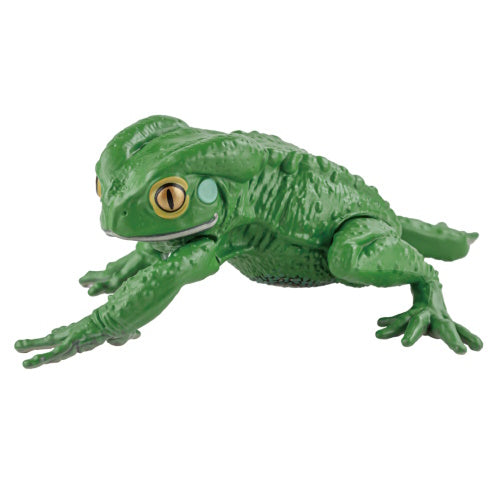Common Wellness Issues in Reptiles: Signs and Solutions
In the intricate globe of reptile treatment, understanding the usual wellness issues that may influence these distinct creatures is paramount in guaranteeing their health. Whether it's grappling with parasitic problems, browsing dehydration issues, or dealing with skin conditions that manifest in subtle ways, being attuned to the signs and symptoms and furnished with the understanding of efficient services is important for any type of reptile proprietor.
Respiratory Infections
Respiratory infections in reptiles can significantly influence their overall health and require prompt attention from seasoned vets. In reptiles, respiratory infections can be specifically testing to diagnose and deal with due to their one-of-a-kind composition and physiology.
Therapy for respiratory infections in reptiles normally includes a combination of supportive care, such as maintaining appropriate humidity degrees and temperature gradients in the room, in addition to targeted medication to deal with the specific microorganism accountable for the infection. It is essential for reptile proprietors to check their pets carefully for any indications of breathing distress and look for vet treatment at the earliest indicator of a concern. With timely treatment and suitable therapy, lots of reptiles can recuperate totally from respiratory system infections and return to regular activities.

Metabolic Bone Condition
What factors contribute to the advancement of Metabolic Bone Disease in reptiles?
Metabolic Bone Condition (MBD) in reptiles is primarily caused by an absence of appropriate calcium, phosphorus, and vitamin D3 degrees in their diet plan. When reptiles do not get adequate calcium, either through their food or correct UVB exposure for vitamin D3 synthesis, they go to a high risk of creating MBD. Reptiles with diet regimens low in calcium or imbalanced calcium to phosphorus proportions are particularly susceptible. Furthermore, insufficient direct exposure to UVB light protects against reptiles from manufacturing vitamin D3, which is crucial for calcium absorption and bone health.
Other adding elements to MBD include improper temperature level gradients within the reptile's habitat, bring about decreased metabolic process and damaged calcium absorption. Inadequate moisture levels can likewise influence a reptile's capability to metabolize calcium effectively. Moreover, certain reptile varieties have particular nutritional requirements that, if not fulfilled, can raise the possibility of establishing MBD. Normal veterinary exams, correct husbandry techniques, and a balanced diet plan are necessary to avoid Metabolic Bone Disease in reptiles.
Parasitical Infestations
Parasitical problems position a considerable health and wellness risk to reptiles, affecting their general well-being and needing prompt vet focus. Reptiles can be influenced by various bloodsuckers, consisting of termites, ticks, inner worms, and protozoa. These bloodsuckers can trigger a series of symptoms, such as weight management, lethargy, skin inflammation, diarrhea, and even death if left unattended.
One typical parasite discovered in reptiles is the mite, which can trigger skin irritation, anxiety, and anemia. Ticks are one more external bloodsucker that can create and transfer illness pain to the reptile. Interior parasites special info like worms and protozoa can result in gastrointestinal issues, poor nutrition, and deteriorate the reptile's immune system.
To identify a parasitical invasion, a veterinarian might do fecal examinations, skin scrapings, or blood examinations. Treatment typically includes deworming medications, antiparasitic bathrooms, or in extreme instances, hospitalization. Preventative measures such as normal vet examinations, correct health, and quarantine procedures dig this for brand-new reptiles can aid reduce the risk of parasitic invasions and make certain the wellness of reptile family pets.
Dehydration and Hydration Issues
Dehydration in reptiles can considerably influence their health and well-being, necessitating timely intervention and appropriate hydration administration. Reptiles are susceptible to dehydration as a result of different elements such as insufficient water intake, high environmental temperature levels, and particular health and wellness problems. Symptoms of dehydration in reptiles consist of sunken eyes, lethargy, loss of skin elasticity, and reduced urination. If left untreated, dehydration can result in severe wellness concerns and even be fatal to the reptile.
To stop dehydration, reptile proprietors should guarantee that their pet dogs have access to clean water whatsoever times. The water dish need to be big sufficient for the reptile to take in if required, specifically for types that take in water via their skin. Additionally, maintaining proper moisture degrees in the reptile's unit and offering normal bathrooms can assist stop dehydration.
In situations of dehydration, it is important to look for veterinary treatment immediately. A vet might carry out liquids either by mouth or via injections to rehydrate the reptile. It is important to deal with the underlying root cause of dehydration to protect against recurrence and make certain the reptile's total health.
Skin Conditions

Verdict

Respiratory infections in reptiles can dramatically affect their overall wellness and require prompt attention from knowledgeable veterinarians (rain frog for sale). Preventative steps such as regular vet exams, proper health, and quarantine procedures for brand-new reptiles can help reduce the danger of parasitic problems and make sure the well-being of reptile animals
If left without treatment, dehydration can lead to significant health and wellness problems and even be deadly to the reptile.
Routinely evaluating your reptile for any type of changes in skin shade, texture, or appearance can assist in early detection and treatment of skin conditions, promoting the total wellness and health of your scaly companion. - rain frog for sale
In conclusion, reptiles are vulnerable to numerous health problems such as breathing infections, metabolic bone condition, parasitic invasions, dehydration, and skin ailments.